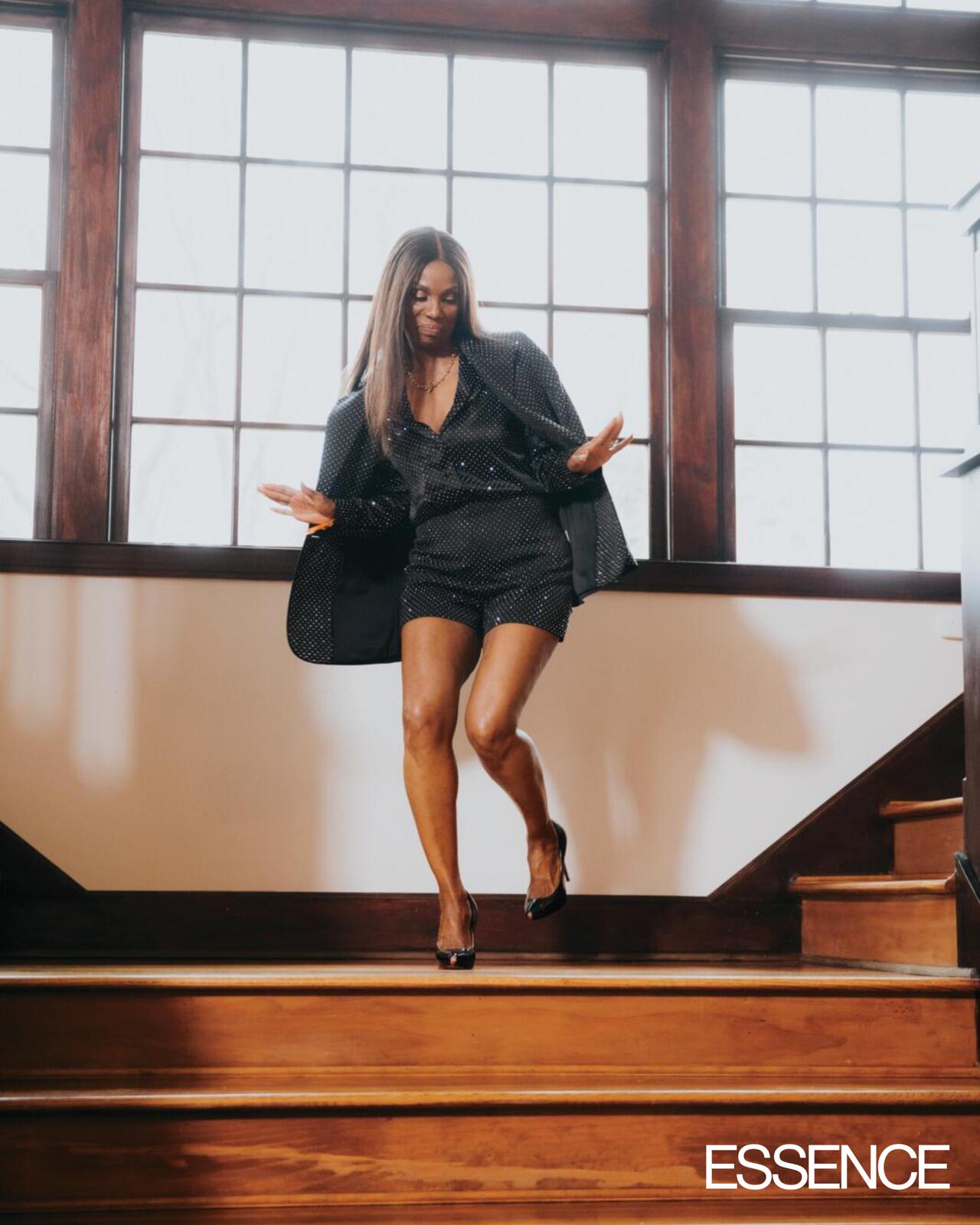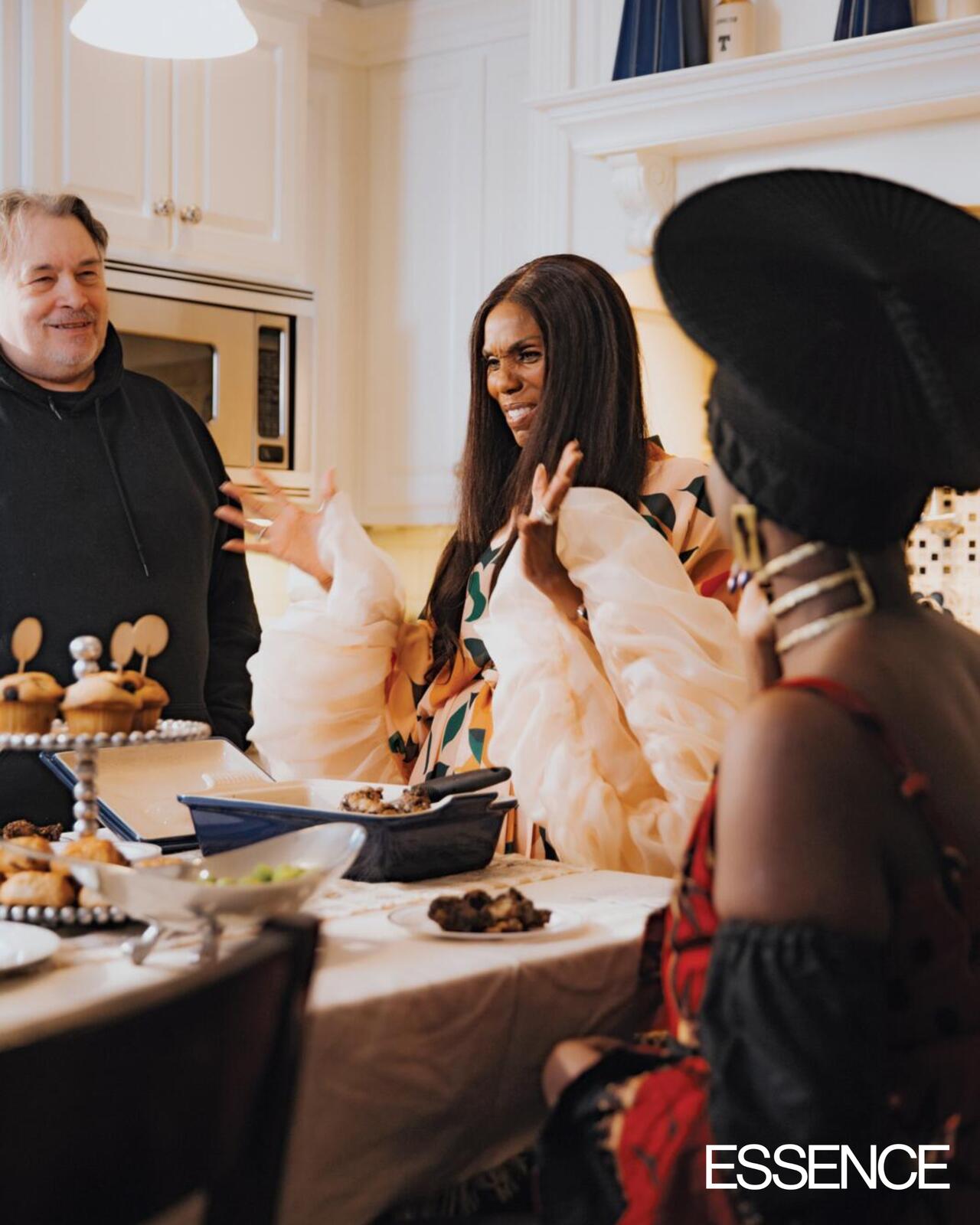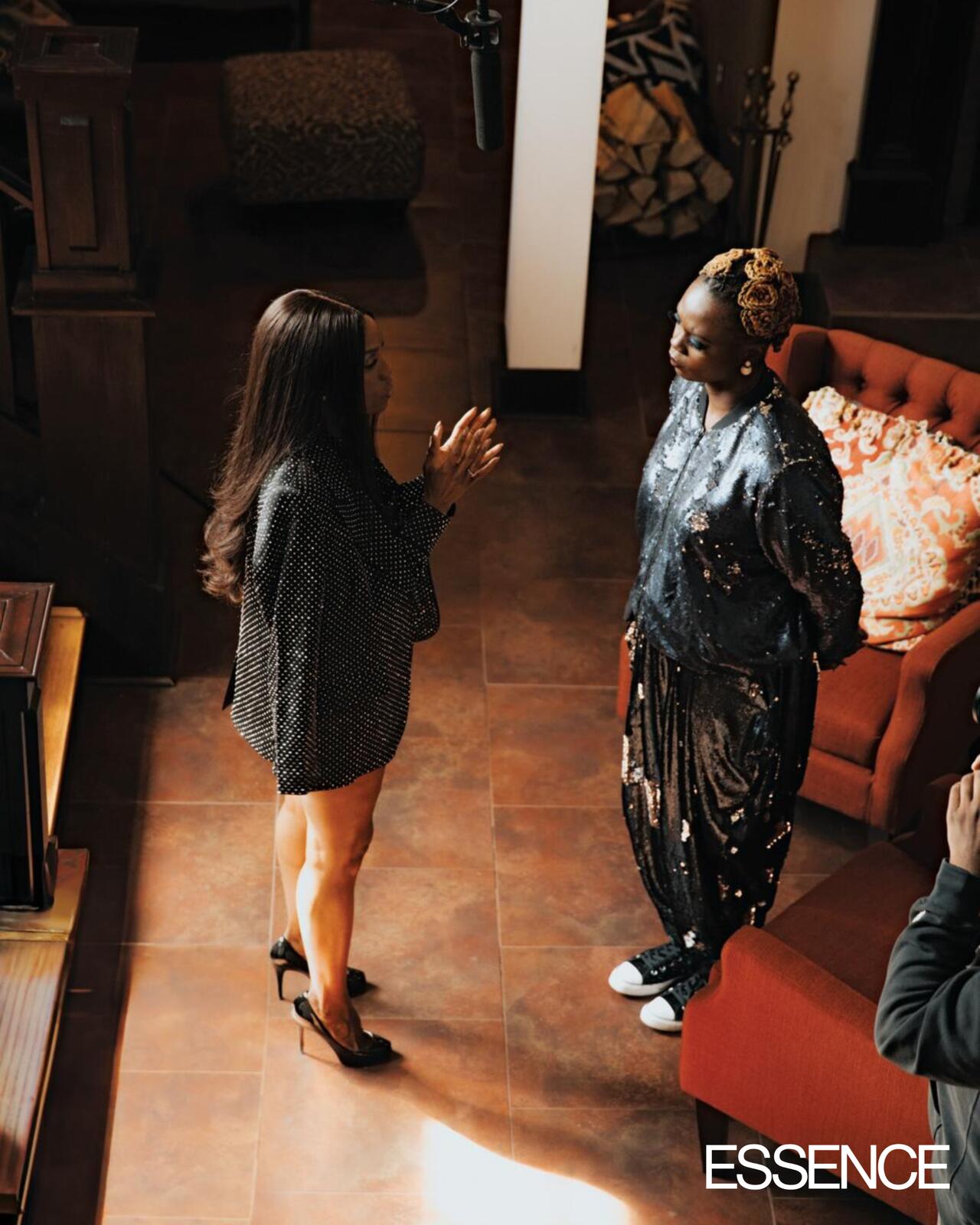Caroline Wanga: Who is Yvette Noel-Schure?
Yvette Noel-Schure: Well, I was a journalist first—an entertainment and music journalist. Back in the day, I wrote for a Black publication for teenagers—Black Beat. At the time, Right On! was the bigger one, and Black Beat became its sister publication when one publisher bought both magazines. So while working there, you know, you meet people who will help you along your way. I met Larry Jenkins when he was at Capitol Records. And in the years after I met him, he went over to [another record label], and he was looking for a publicist. I called one day when he was fed up. He was like, “I’m not finding anybody.”

Wanga: You just happened to be calling him about something else?
Noel-Schure: Like, “Where’s [the] album? I’m trying to write a review.” He heard something in my voice. Later he called it “passion.” And he said, “You know, I haven’t really thought about a journalist becoming a publicist. Are you interested?”
Wanga: It wasn’t a typical career path?
Noel-Schure: No. But when he said, “Are you interested?” I said, “No. I’m interested in getting the album—I’m on deadline!” He convinced me that he would send the album, and then I could come up and talk to him. He sent the album. I sat at my desk. I listened. I wrote my quick review. And then I went up, and he hired me.
I was scared the whole time. I say this all the time, and no one believes me. I spent 17 years at Sony, and 17 years I had a small box under my desk that I kicked every day to remind myself that this is not my company and I could be fired anytime.
Wanga: What happened after spending 17 years at Sony?
Noel-Schure: It just felt like it was no longer a place that was fitting me. I didn’t feel like I needed to be there anymore. So I left, with no plans. When I left Sony, I got up the next Monday, and I got dressed, and I went into the city. I had an appointment with [redacted].
A couple of days went by and I was like “Ooh I can go home to Grenada. I can lie on the beach. I can have a good time. I can be a beach bum for a while until I figure this out. And then my phone rang. And I heard a Southern accent: “Hey you left Sony? What does that mean for me?” And then that’s how I started. I started with one girl, one young woman, one beautiful young woman.

Wanga: How do you convince your clients when they don’t agree with an idea you’re pitching them? What’s your process?
Noel-Schure: I say the same thing over and over: “Have I ever lied to you? And do you believe that when I believe something, I’m relentless?” And they’re like, “You’re relentless.” And they’re like, “Okay.” Yeah, I mean listen—I’m here to execute the plan of my clients, straight up. You want this? I’m gonna fight for you.
Another thing I always think of myself as is the immigrant, as the outsider, as the person who should take the time to make every single person feel like they belong. There’s nothing wrong with other people coming to the island. But you know there’s a real issue, still, in that Black people—not just Caribbean people, but American Black people, need to go to the Caribbean. They need to go to Africa. They need to see Bahia. They need to go and see that there are people that look like me and look like them in other places, and they’re doing amazing things. When I was growing up, the doctor looked like me, the engineer looked like me, the President looked like me and the Prime Minister looked just like me! That’s really important.

Wanga: If you could use one word to describe your closet, what would it be? And why?
Noel-Schure: Sublime. The truth is, the word is sanctuary. I know that somebody [reading] this is going to be like: This is just all aesthetics and material things—but it’s really not. I had nothing in 2008. Every piece was given to me—or I shopped really intentionally for things that made me think of Black women’s joy. I started very purposefully purchasing things from Black women. This, from fellow Grenadian Fe Noel. It was just very important to me that whatever I wore was comfortable. Had a bit of history to it. And I just wanted to surround myself with things that I wanted—because I was bringing in spirits, into the space where I’m putting these things, and they needed to align. If you ever spoke to my daughters, they’d say, “She’s got too much shiny stuff.” But I like shiny things. I like gold shoes, and gold boots, and silver and all of that. But I also like things that remind me of the Caribbean Sea—like the nutmeg on the dress, and anything that reminds me of a mango or a coconut. My closet is my joy room, and I tried to be very deliberate in this room. Very deliberate. Because it’s a special room, and like I said, it’s become my sanctuary. It’s where I keep tangible proof of the ancestors. And it’s probably my most special room in the house. And in 2020, during the pandemic, it became my office.
Wanga: What is the advice for the Chiefs who read this?
Noel-Schure: “Well I would say that, for young girls and I’m specifically going to talk to those that look like me. Whether they are in Birch Grove, St. Andrews, Grenada, or whether they’re in San Fernando Valley in Trinidad or San Michael’s in Barbados or Bahia in Brazil, or if they are in Lagos or if they are in Kenya or South Africa, wherever they are. Two things saved me. Love saved me because I remember sort of falling back and remembering those who love me and a voice. First, you have to learn how to ignore the voices of the sentient, the voices that constantly are there to put you down and start really turning up the volume on the positive voices, the people who told you that you can make it, the people who told you you’re beautiful, whatever beauty means to you. Then after a while, you even have to learn to filter out their voices so the loudest voice in your head becomes your own. If you wake up in the morning and you can tell yourself you loved you, everything else is gravy.
Editor’s Note: This article was initially crafted for inclusion in the May/June 2024 edition of ESSENCE. Subsequent revisions have been made to ensure accuracy and clarity.